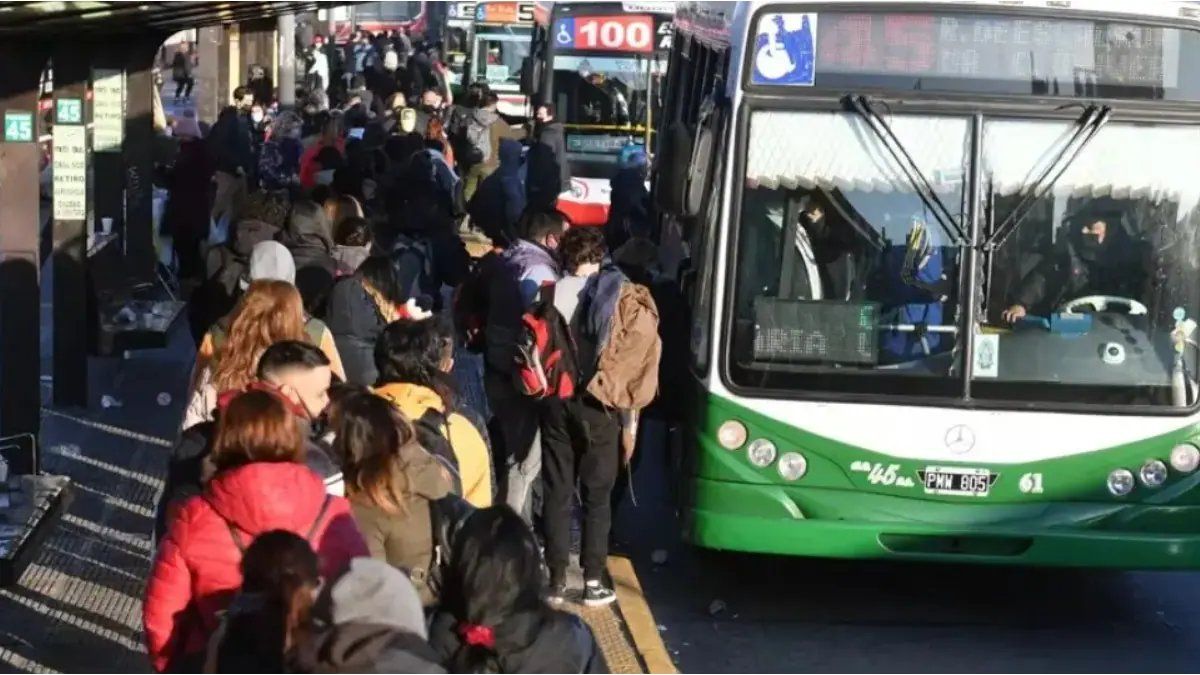The President Javier Milei and the Head of Government of Buenos Aires, Jorge Macrimet today in Pink House to seal the agreement on the transfer of 31 bus lines to the City. Thus, the Macri administration confirmed that “for the moment” the value of the ticket will not increase, as well as that the discount for the SUBE Network.
The Agreement Act puts an end to a conflict between the two governments that had lasted for several weeks. “Today is a very important day, a day where progress is once again being made towards the autonomy of the City,” said Macri after leaving the meeting with the President.
What will happen to the Sube Network?
After arduous weeks of negotiations, Jorge Macri reached an agreement with the national government regarding subsidies for the 31 bus lines which circulate only in Buenos Aires. The meeting at Casa Rosada defined the near future for public transport users.
57% of SUBE Network users have access to discounts and the integrated ticket
The SUBE Network will be maintained for the 31 Buenos Aires lines.
The highlight of the transfer is that the GCBA will finance the Red Sube program. This program reflects a rate reduction of 50% and 75% in travel combinations. These must be done within a period of two hours and with a minimum interval of 2 minutes between each trip.
In this way, after the transfer, public transport users who benefited from the program will continue to access the discount on their trips, which will now be provided by the government of CABA.
In addition, the Macri government will take charge of 66% of the bus ticket subsidy, which implies a cost of $7 billion monthly that will emerge from “reprioritizations” which the City administration is working on. In this way, they assured that “for the moment” the cost of the trip will remain the same.
For its part, the national government confirmed that it will maintain the Red Sube program in all interjurisdictional lines, that is, those that cross CABA and the province of Buenos Aires. In addition, the Social Rate throughout the country, with discounts of 55% for the 5.3 million of beneficiaries.
Collectives: what was agreed between Nació and Ciudad
The signing of the Agreement Act confirmed the transfer of the 31 bus lines that will be progressively absorbed by the Buenos Aires administration. Thus, the document reflects that it will now be the City of Buenos Aires that must take charge of the regulation, control and supervision of services and having the power to set rates.
Embed – https://publish.twitter.com/oembed?url=https://x.com/jorgemacri/status/1830999442553741351&partner=&hide_thread=false
TRANSFER OF THE 31 BUS LINES: WE REACHED AN AGREEMENT
Together with the National Government, we have agreed on an orderly transition of the 31 bus lines that have their route within the City. From now on, we will take charge of their management to achieve a safe and efficient transportation… pic.twitter.com/k5RFKAFBND
— Jorge Macri (@jorgemacri) September 3, 2024
On the other hand, the GCBA also agreed to assume All subsidies since September 1sttaking charge of the management of the lines.
Thus, the 31 lines that operate within the Buenos Aires territory and that were affected by the measure are: 4, 6, 7, 12, 23, 25, 26, 34, 39, 42, 44, 47, 50, 61, 62, 64, 65, 68, 76, 84, 90, 99, 102, 106, 107, 108, 109, 115, 118, 132 and 151.
Source: Ambito
I am a 24-year-old writer and journalist who has been working in the news industry for the past two years. I write primarily about market news, so if you’re looking for insights into what’s going on in the stock market or economic indicators, you’ve come to the right place. I also dabble in writing articles on lifestyle trends and pop culture news.




